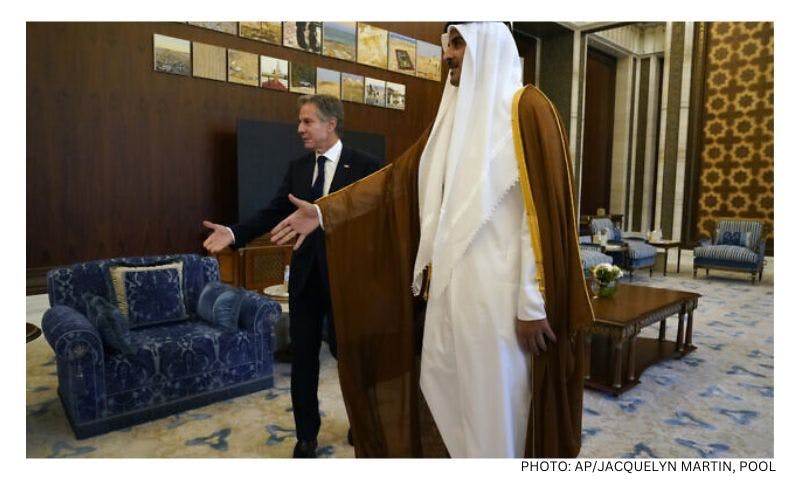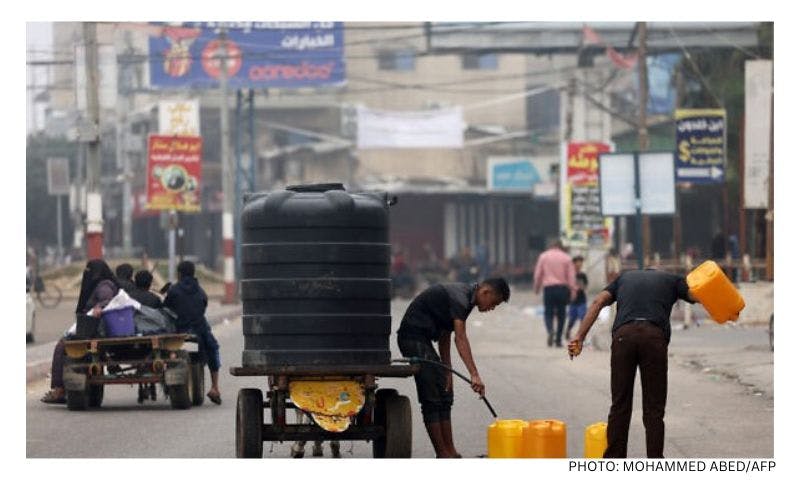Published: 5 October 2020
Last updated: 4 March 2024
NETANYA GINSBURG WAVES her black flag at the cars passing by. "I love my country and I hate what [Prime Minister Benjamin] Netanyahu is doing to it. And so I'm going to demonstrate here every day," Ginsburg, 81, a retired university librarian, says.
Ginsburg is standing at busy intersection in Kiryat Hayovel, a working-class neighbourhood in Western Jerusalem in the late evening. The intersection is near the "Monster Park," a well-known park with the "Monster Slide," where generations of Jerusalem kids have spent countless hours. Cars zip by; some drivers honk or flash a V-sign; others curse or make obscene gestures.
"Netanyahu thought he could kill our demonstrations! We're showing him, aren't we?" she says gleefully.
Ginsburg is a resident of nearby Noffim, an assisted living facility for the elderly. "The residents come out every day now," she says. "Younger people bring chairs and set them down on the sidewalk, so now we can all demonstrate."
The night before, while demonstrating at the same intersection, Ginzburg had been attacked by a Netanyahu supporter and fell, bruising her arm and her leg. "It'll take more than that to keep an old lady like me from trying to save our democracy," she declares.
[gallery columns="1" size="large" ids="38599"]
For over three months, anti-Netanyahu protestors have held weekly demonstrations outside his official residence in Jerusalem and private home in Ceasarea, accompanied by hundreds of smaller protests throughout the country. The protests have been loud and creative, and have been growing in size and energy from week to week.
Until now, even as the government implemented various levels of lockdown in its efforts to combat the Corona virus, demonstrations have been excluded from the restrictions, according to rulings by Israel's High Court of Justice.
But late last month, the government tightened the restrictions even further, including regulations that citizens may travel no further than a kilometre from their home and stricter social distancing.
The government has insisted that these measures are necessary to curb COVID-19 infections – even though, a Health Ministry epidemiologist reported that there were no known incidents of infection at the protests, which are outdoors and nearly everyone has been masked.
A website called One Kilometre, with the slogan "1,000 metres won't stop us, enables users to find a demonstration or create their own and invite others to join them.
The regulations are intended to be in effect until October 8, although Netanyahu and other government ministers have already declared that they are likely to be extended well beyond that.
Many, especially from the political left and centre-left, regard these new regulations as politically motivated., as noted by Haaretz in an editorial. "Prime Minister Benjamin Netanyahu is attempting, in the most cynical fashion, to exploit the coronavirus and the restrictions needed to fight its spread in order to undermine fundamental democratic rights and to suppress the dissent against him and his incorrigible government…this amendment…isn't aiming to stop the spread of the virus, but the spread of dissent," the editorial reads.
Undeterred, demonstrators responded to the restrictions with a new tactic – "pocket demonstrations," held in neighbourhoods and intersections throughout the country, all within a kilometre of the demonstrators' homes.
Signs reading, "the whole country is Balfour" – a reference to Balfour Street in Jerusalem, the location of the prime minister's official residence – sprouted up throughout the country and on social media within hours of the publication of the new regulations.
By Saturday night, over 1,000 such protests were held throughout the country, with organisers estimating that as many as 100,000 people were participating, including hundreds of people in Tel Aviv's central Habima Square.
In many locations, such as Kiryat Hayovel, demonstrators have promised to turn out every night, and social media entrepreneurs have come to their aid. Using Google maps, Black Flag activists have created a list of all the different locations where demonstrations are happening, specifically noting the distance from the demonstrators' homes.
Other sites have published the home addresses of Knesset Members and ministers – just in case someone lives within a kilomtre. And a website called One Kilometre, with the slogan "1,000 metres won't stop us, enables users to find a demonstration or create their own and invite others to join them.
Zeev Eingrish, 63, a computer technician is standing at another busy Jerusalem intersection, in the upscale German Colony neighbourhood. His hand-painted sign reads, "The more they afflicted them, the more they multiplied and grew," a quote from Exodus 1:12 referring to the Egyptian oppression of the Israelites.
[gallery columns="1" size="large" ids="38600"]
"Bibi doesn't get it," Eingrish explains. "These demonstrations only really took off when the police arrested Amir Haskel [the ex-general who had been demonstrating alone for months until then]. I am demonstrating to save democracy and to rid our country of corruption and fascism. The more Bibi and his minions afflict us," he points to his sign, "the more our demonstrations will grow."
Indeed, the regulations against the demonstrations have backfired into enabling more people to participate. Explains Shmuel Kedar, an employee over the Israel Museum who has been put on forced leave: "I am over 65 and I am in a high-risk group [for contracting the coronavirus]. So I haven't attended the demonstrations. But now I can walk out of my house, maintain social distancing, and not take a risk. Bibi kicked his own goal."
But some are worried that the same energy that has spurred individuals like Kedar to take action is also motivating their opponents. On Saturday night, some demonstrators claim, responses against demonstrators were nastier and more violent than they have been in the recent past.
Guy Lev, 48, a demonstrator in Pardes Hana, a town on Israel's coastal plain, was attacked by a group of Netanyahu supporters and suffered a broken arm and cracked ribs. Speaking on Israel's Channel 12 news, he recalled that as he arrived at the demonstration in his car he saw a man exit a house and spit at a young woman who was apparently heading to the rally.
Lev said he stopped his car and got out to shout at the man, who then disappeared inside the home before returning with a large crowd of people. Within seconds “men and women attacked,” he said.
The Justice Minister has called on the Prime Minister to stop the incitement. "It is embarrassing to see that Netanyahu has chosen to continue to incite against the protestors," he tweeted.
“I felt like my life was in danger. I ran away on foot. They caught up with me in ten seconds, hitting me with punches from behind. They forced me to the ground and kicked me all over.
“The feeling at the moment is that we have no security," Lev concluded. "There need to be police officers who help us and defend our right to protest.”
But others contend that the police are responsible for the violence. Clashes with the police on Saturday night led to the arrest of some 38 people, and the police handed out hundreds of tickets to demonstrators who were ostensibly not wearing masks or other infractions. And both Lev and Ginsburg noted that the police did not intervene when they were attacked.
Commentator Amos Harel, speaking on a podcast produced by the liberal daily, Haaretz, claims that police violence is "not bottom-up, it's top down. Police are commanders getting the message" from the government that this is how Netanyahu and his government expect them to behave.
Indeed, following the clashes on Saturday night, Public Security Minister Amir Ohana tweeted that the police should be even more aggressive towards the demonstrators.
Since they began months ago, Netanyahu has consistently incited against the demonstrations, calling the demonstrators "disease spreaders" and "anarchists," among other names, and he has continued to do so.
In fact, on Sunday morning, the Justice Minister called on the Prime Minister to stop the incitement. "It is embarrassing to see that Netanyahu has chosen to continue to incite against the protestors," he tweeted.
Why Netanyahu has responded to viscerally to these demonstrations remains an open question, especially given that it is unclear if the demonstrations are leading to any kind of political shift. It would appear, speculated commentator Nir Hasson, that the protests are "getting to Netanyahu and putting his family under strain."
They may also be placing pressure on members of the Blue and White party, which could potentially lead to a collapse of Netanyahu's already shaky coalition government. Following the institution of the new regulations, Tourism Minister Asaf Zamir from Blue and White resigned, saying he doesn't have "an ounce of trust" in Prime Minister Benjamin Netanyahu who, he says, is consistently putting his personal and legal issues ahead of his response to the corona virus.
And on Sunday night, MK Miki Haimovich told Israeli radio that "in recent days, there has been a growing group in Blue and White that is definitely thinking about the option of even dissolving [the partnership with Netanyahu.] …We should not give up the centres of power, but act to replace Netanyahu."
READ MORE
Netanyahu is crushing dissent among Israeli Jews now, too (Washington Post)
This ban isn’t about the virus; it’s about Netanyahu holding on to power. He’s finally gotten desperate enough to deploy tactics Israel routinely uses against Palestinians on its Jewish citizens, too. The right to protest was always restricted for Palestinians. Many Jewish citizens just never noticed
Former Israeli police officials: commanders taking hard line in protests to appease minister (Haaretz)
Some retired officers, including former police chief, suggest that district commanders are seeking to ingratiate themselves to Public Security Minister Amir Ohana in the hope of being appointed police commissioner
After protest violence, Tel Aviv mayor says cops are being used to play politics (Times of Israel)
Harsh response to anti-Netanyahu demonstrators wasn’t to enforce virus lockdown, but ‘to break the protests,’ Ron Huldai charges; police chief denies accusations
Footage shows violent police crackdown on anti-Netanyahu protesters, journalists (Haaretz)
Protester taken to hospital after being punched in the face; protest group reports several other attacks on demonstrators; police officers hit protesters blocking way
Main photo: demonstration in Jaffa, Tel Aviv, October 3 (Facebook)




